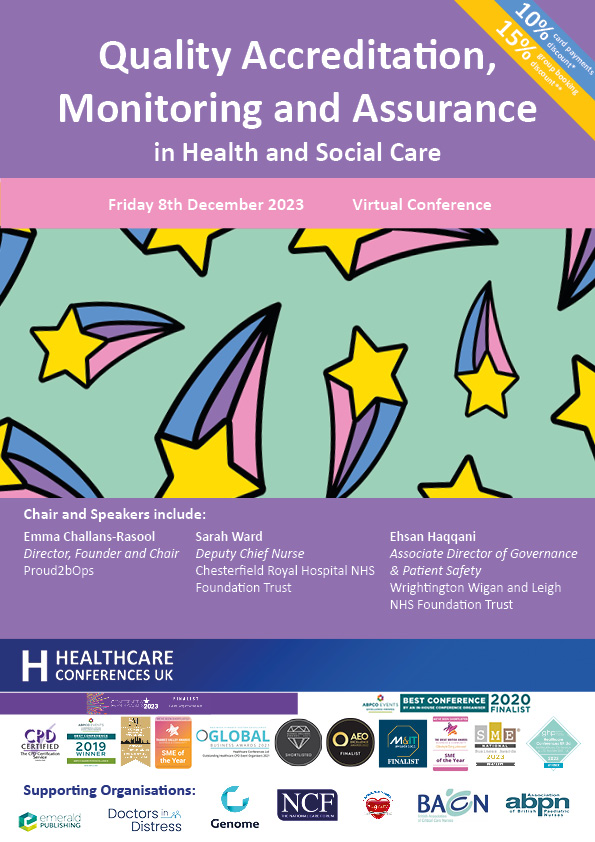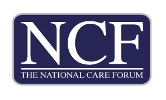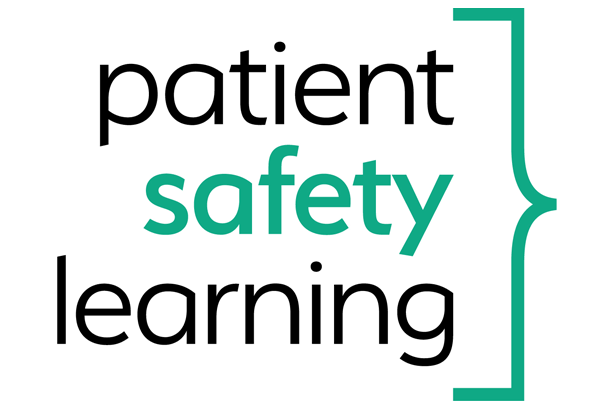Follow the conference on X #QualityAccreditation
“Local accreditation programmes can drive continuous improvement in patient outcomes, as well as increase patient satisfaction and staff experience… Successfully implemented accreditation programmes identify several key benefits including reduction in unwarranted variation in practice, development of a culture of pride and accomplishment and increased quality improvement engagement and practice.”
NHS England
“Trusts that have implemented successful accreditation programmes report several key benefits from doing so. These are:
• Reduces unwarranted variation by providing an evidence-based, standardised approach to supporting the delivery of care and improving quality. It standardises practice in key processes: for example, patient discharge, patient observations, staffing, risk assessments for patients, audits
• Increases staff engagement, encourages team working and improves staff morale, leading to reduced turnover, sickness and reliance on temporary staff • Helps doctors, nurses, midwives and care staff understand what the expected standards are at Trust, ward and unit level by providing a clear set of standards and a measure of how well quality care is being delivered
• Provides ward-to- board assurance on the quality of care and demonstrates compliance with fundamental standards which enables preparedness for external inspections
• Creates a platform for continuous improvement in patient safety and patient experience, and encourages staff ”
NHS Improvement
This conference focuses quality accreditation, monitoring and assurance. The conference will support you to develop systems and processes for local accreditation for quality. Accreditation can be used as a tool to encouraging ownership of continuous quality improvement, reduce variation and increase staff pride and team working.
This conference will also update delegates on the New CQC Single Assessment Framework
“We are now using our new approach to regulation across England…We will be scoring at quality statement and rating at key question level. Assessments will still evaluate evidence categories to reach a quality statement score but we will not score evidence categories. We will apply professional judgement to ensure it is a complete picture and the quality statement scoring is correct. This will allow us to assess and inspect more services while ensuring our ratings are robust. This will also allow us to produce better reports that are clearer about our judgements and ratings.”
CQC 3rd October 2024
This conference will enable you to:
Network with colleagues who are working to improve quality through local monitoring and accreditation
Learn from outstanding practice in quality improvement and accreditation
Reflect on a patient perspective on the role of people with lived experience in quality monitoring and improvement
Improve the selection and use of quality metrics and indicators
Develop your quality leadership skills and empower and support staff to meet standards
Identify key strategies for aligning Quality Accreditation with updated CQC Quality Statements
Understand how to embed a Quality Culture and translate the CQC Quality Statements into Frontline Service Delivery: Examples of practice
Develop and use quality dashboards and Artificial Intelligence to support QI
Practical advice for undertaking CQC Self Assessment
Learn from examples at ward, directorate and organisational level
Embedding a culture of quality improvement
Self assess and reflect on your own practice
Supports CPD professional development and acts as revalidation evidence. This course provides 5 Hrs training for CPD subject to peer group approval for revalidation purposes








